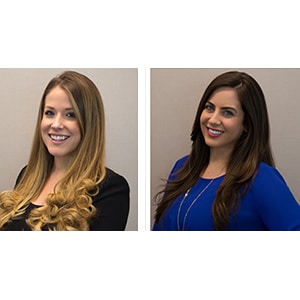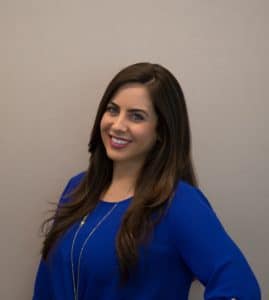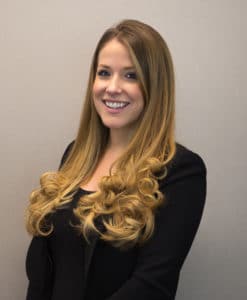
Radio Ink is on a mission to debunk the theory that Millennials do not want to work in radio. Phylicia Cahill and Amanda Latorraca are both 29 years old, and work for Connoisseur Media’s cluster in Connecticut. Phylicia got her start in radio as an intern in 2008 and moved into sales in 2012. Amanda started in media sales, also in 2008, at a local television station. She made the switch to radio four years later. Here’s what they say about working in the radio industry.
Radio Ink: How and why did you choose radio?

Cahill: I’ve always been fascinated by the broadcast industry in general. My major in college was mass media communications, and then later I continued in trade school at Connecticut School of Broadcasting to further my education in the technical skills and all the different aspects of the industry. While initially I was more interested in becoming an on-air talent, through my internship experiences in radio and TV and also working for a small-business owner throughout my college years and helping with their marketing campaigns, I realized that I had a niche for marketing and advertising and contained the skills and passion needed to succeed in radio sales. So then I explored my options in radio sales.
Latorraca: As someone who is passionate about music, it seemed like a natural fit. While I started my career in TV, radio always seemed to be more creative and have more to offer clients than a traditional 30-second spot. I was intrigued by the community involvement, sponsorships, and special events and knew it was going to be a more effective, well-rounded medium to help my clients reach their goals. My existing clients were very receptive to my transition, and I was able to use my current relationships to garner new ones, and I haven’t looked back.
Radio Ink: There is a perception that millennials do not want to get into
the radio business. Is that true? What about your friends — what do
they say about your being in radio.
Cahill: I think that perception may exist more now as the media industry evolves and is consistently changing. The younger spectrum of the millennial generation is being influenced by new media: social media, streaming, digital, etc., and may not find radio as relevant anymore. They also may have an unrealistic preconception that there is no money to be made in radio, which is not the case, especially in sales
As for my friends, their initial thought of me being in radio is that it is “cool and fun,” and they’re intrigued by the “glamour” of it all, i.e., the perks of meeting artists, hearing me sometimes on air, going to community events, etc. But as time goes on and I continue in this business, they really see how hard I work and the success I’ve had in this industry, which has changed their perception of radio as just a fun environment to work in. They realize now that it is a true career for me, not just a fun job, and are proud to see me excel in what some might think is a “dying industry.”
Latorraca: There may be a perception among millennials that the radio business is

somewhat archaic. However, when you look at how people consume media, there is still a vast majority of people who habitually use traditional media. Local people relate to and are loyal to local media. It provides a sense of home. My friends see the high-level view of the radio business, going to events, meeting talent, whether it is local personalities or nationally known artists.
It is a fun job, and I am thrilled I get to work in an industry that has a glamorous perception. My friends also know that nothing comes without hard work and dedication. There is a lot of time and effort that goes into my role, long hours and sometimes weekends. I am always “on,” but the hard work pays off. It is a good feeling to be admired by your peers for the success you’ve created at such a young age.
Radio Ink: What interests you most about selling radio?
Cahill: There are many things that interest me about selling radio, such as being involved in the community, learning a little about a lot of different types of businesses, helping businesses grow and succeed. But to be honest, what interests me the most is that I am in control of my own economic destiny, meaning I can essentially control what my salary is each year by the level of work that I put in.
Many times I hear friends or family members complain about their current job situations, how they’re not making enough and work so hard, yet have not received a pay raise in quite some time. It makes me reflect on how lucky I am that if I want a pay raise, I just have to put in an extra 10 percent in my work ethic and I can receive a pay raise by the end of the month. Selling radio allows me to be an entrepreneur and be in control of my own little enterprise, and that’s something I thrive off of.
Latorraca: Creating integrated marketing plans that help my clients reach their goals is my number one interest, and priority. There is nothing more rewarding than helping businesses, regardless of size and industry, grow and reach their desired outcomes. The best thing about working in sales is that I essentially run my own business.
Everything I get out of this job is dependent upon what I put into it. Being a self-motivated, hard-working individual truly fuels my success. I am the type of person who loves to learn and grow both personally and professionally, and this is the one place I found I can do that on a daily basis. No two days are the same, no two clients are the same. I am always wearing multiple hats and adapting to every situation, and I feel that has developed me into the wellrounded professional I am today.
Radio Ink: What do you find most exciting about being in radio?
Cahill: I find it exciting when my clients see results from a campaign that I created for them from start to finish. There is no better feeling than going into a recap meeting with a client and seeing a smiling face, along with supporting stats that reflect that their business has been improving as a result of the campaign I put together for them. Radio allows me to be creative and offer clients unique, customized solutions to fit within their specific marketing goals, needs, and budget.
I love that with radio, I can integrate multi-tiered components into a campaign, such as events, sponsorships, digital, endorsements, etc., and not every campaign is the same. We have something to offer to every type of business. It is very exciting when I get to offer my creative resources to help a business grow and then see it actually work.
Latorraca: Seeing my clients’ reactions when they do an on-air interview, or have the talent promote their business, is probably the most exciting part. Knowing that we can offer them a personalized touch that no other media outlet can is very satisfying. We are also fortunate to host a variety of events, and meet people from all walks of life. Working for a company that has multiple stations with different music genres, we also get to interact with artists from every category. We have something for everyone. It is exciting to be able to adapt to every client’s needs by simply being who we are.
Radio Ink: What are your biggest challenges so far?
Cahill: Breaking business owners’ current advertising habits. Some business owners have been doing the same thing for over 20 years, such as newspaper ads, billboards, TV, or any other type of media, and sometimes it’s not even that they “don’t like radio,” it’s just the thought of change that puts them off.
Breaking a habit for someone, no matter what it may be, is always challenging. Then getting them to give you the time to allow you to educate them on the benefits of advertising with radio is just as challenging. Business owners are busy, and running their day-to-day business is at the top of their list, where adding in a new advertising medium is probably much lower in their priorities, so they put up a wall against allowing anything new in. So overall, breaking down the “walls” and habits of business owners are my biggest challenges.
Latorraca: The biggest challenge I have experienced is the education piece of this job — educating clients to not be afraid of change, to trust the recommendations that I am making as the industry expert, and not rely on their safety blanket of their usual media mix. I take this challenge as an opportunity to provide research and examples, as well as my professional knowledge that comes from experience.
This comes with growing the relationship from someone selling them media to becoming a trusted media adviser. Once you reach that point, and have established trust, you can usually guarantee a client for life. The hardest part is getting there. As everyone gets busier, fighting for clients’ time and attention presents another challenge. I make it a priority to always bring value to every meeting, and show them they can rely on me to make the best recommendation for their business goals.
Radio Ink: How does the digital world affect the way you sell?
Cahill: The digital world actually helps my process in selling radio. I utilize digital components in all of my campaigns that I offer to my clients, as I realize the benefits and importance of having a digital presence in today’s world. Whether that be social media components or SEO marketing, I am able to offer that to a client that may not already be exploring those options. It is my job to educate my clients on how media works collectively, and how digital marketing will enhance their radio campaign.
Digital search engines can help one find a phone number or location of a business, but radio will incentivize people to actually go and search for a specific business online, and essentially choose that business over competitors. I convey this message to each of my advertisers and offer them multi-tiered solutions that include digital in every campaign.
Latorraca: The digital world doesn’t affect the way that I sell. I integrate digital solutions into all my campaigns, because I know it is where clients need to be. The more they diversify their mix, the more success they will have. Clients who understand and value digital media are the best clients. They know the importance of having a digital presence; they understand how it benefits them to be accessible.
I explain to my clients that when someone hears your commercial on the radio, their next step is usually to turn to a search engine to further explore your business. The more digital-friendly a client is, the more seamless and successful their campaign will be. Being a millennial, digital media is a big part of my life. Having the knowledge, and being able to effectively communicate with clients about the digital world, has set me apart from a lot of my competitors.
Radio Ink: How do you deal with rejection?
Cahill: Of course, I never take an initial no as a final answer. So first I deal with rejection by being persistent without being a “pushy salesperson.” I try to further engage with the prospect and get to the root of why they are rejecting and figure out if it is a valid enough reason to walk away or if there’s a way I can combat the rejection by further educating them on the benefits and the need for my services.
However, I may not always be able to combat the rejection, and not every call is going to be a success or a win. So when no is the final answer, the way I deal with it is using that as fuel for motivation to keep going and make the next call a yes. There is a quote that I always try to remind myself of whenever I am feeling in a lull in my career: “You’re only down-and-out if you’re still lying on the floor — get up.” So I deal with rejection by “getting up,” pushing forward, and not allowing it to consume me.
Latorraca: Rejection is part of the sales industry. You will always hear a no before the yes. I use the rejection to motivate myself to make the extra calls until I hear a yes. This could be just a yes for a meeting, but it gives me the extra push I need to overcome the no.
There is almost always a bigger reason behind the no, and that is also something I find myself striving for answers for. It may be that they were misinformed about radio by a previous rep, or that they don’t think they can fit it in their budget. I provide every client with custom solutions to fit every industry and budget, so when I hear no, it usually means that they aren’t fully aware of the capabilities we can offer them. So I fight a little harder to get in front of them and educate them. Unfortunately, we can’t win every sale, but I am not going to go down without a fight!
Radio Ink: What are your long-term goals?
Cahill: My long-term goal is to eventually get into a management role. I’ve always thought of myself as a leader, and I love being able to mentor new hires that come in now and help them learn from my experiences. Currently I am enjoying being in-field, and I would like to use the next few years to further grow my client base with all different genres of businesses, which will allow me to further my knowledge about each industry.
I’ll be able to bring what I’ve learned through my in-field experiences as a seller into my role as a manager to help my team succeed. I hope to continue to be a valued, trusted media professional that clients and agencies know they can turn to and rely on for their marketing needs.
Latorraca: Long-term I see myself growing my client base, and helping as many businesses, locally, regionally, and nationally, reach their desired audience. I will continue to grow personally and professionally, and strive to be the expert in my industry. The more I educate myself, the more value I bring to my clients. I hope to continue to provide creative, innovative solutions, and diversify my book of business. I hope to one day have a client in every industry. It will help me stay relevant, and ultimately be the trusted partner my clients need.
Reach out to congratulate these two Millennials for choosing radio as a career [email protected] and [email protected]






I suspect the accepted position is one along the lines of: “We encourage the sales-side because without that, we are doomed. Programming, Creative and Promotions are facets we are considering to definitely-maybe address at some other time. But only if we know what to do and if there are resources lying around.”
We have a number of talented millennials because we recruit youngsters through local colleges and other places in general. We also use Monster.com. Our air/production staff of 7 has two men who aren’t millennials and 5 who are. Three of those are women.
Of 5 in sales, one is.
Radio has to recruit young people in order to be relevant, develop content that’s attractive to their group, and judge what we’re delivering in our new country and CHR formats.
Looking back over your past interviews with Millenials it appears they all work in sales of one form or another–unless I missed one. I know some reading this may take exception but while the radio product may be more fun and rewarding than other mediums, sales is sales. It’s likely many of these Millenials will leave the industry to sell something else–as most sales folks eventually do. As a Radio INK reader and lover of radio, I’d like to know if Millenials see any long-term rewards from working on-air, or in promotions, or as programmers and music directors. It’s no secret that jobs on the programming side of the building have been slashed to the bone throughout the industry with no signs of ever returning. Do Millenials see any value in the creativity artistry of radio or just the monetary rewards of selling a fun product?